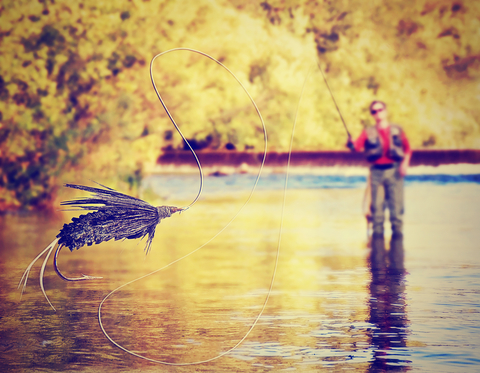Copyright trolling in County Court: A fishing expedition
I was surprised today to learn that Strike 3 Holdings, LLC, had begun filing “pure bill of discovery” cases in County Court in Miami-Dade County. The last time I saw a case like this was in 2014 when Canal Street Films had filed an action against Comcast in Brevard County seeking the identity of dozens of “John Doe” Comcast Internet account holders. Fight Copyright Trolls also wrote about that case at the time, which was not the first such “pure bill of discovery” case in Florida (earlier ones had been filed by Attorney Keith Lipscomb).
In the 2014 Canal Street Films case, on behalf of one of the John Does, I ended up filing a motion for protective order to prohibit the Doe’s disclosure, and, as a result, the Plaintiff ended up agreeing to a dismissal.
The problems with the new Strike 3 cases
These new Strike 3 cases — five years later — are similarly troubling. They are a misuse of Florida’s pure bill of discovery process and are essentially a way for Strike 3 Holdings to circumvent paying separate filing fees in federal court — as well as personal jurisdiction rules.
Normally, Strike 3 Holdings would file one case in federal court for each I.P. address and pay one $400 filing fee for each case, and in each case has to follow the Rules of Federal Civil Procedure. However, with each of these cases, Strike 3 (or its attorneys) paid one single filing fee of $362. One such cases, for example, includes at least 44 I.P. addresses. If the Plaintiff were doing what the rules and law require, it would have filed 44 separate lawsuits in federal courts — and paid $17,600 in filing fees, then another $1540 in subpoena fees, plus about that same amount in service of process fees. By lumping all these claims into one County Court lawsuit, however, Strike 3 Holdings ends up saving more than $20,000 in each lawsuit.
But that’s not the only problem with these lawsuits. To make matters worse, the I.P. addresses they attempt to discover include Internet accounts outside the state of Florida. That means the attorneys who filed these lawsuits would not have even been able to file lawsuits related to those out-of-state I.P. addresses in the federal courts in Florida because, to maintain a lawsuit against a person, court in the state where the lawsuit is filed must have jurisdiction over that person.
But why is filing these claims in state court wrong?
The biggest issue, as I see it, is the state County Court lacks subject matter jurisdiction. Federal courts have exclusive jurisdiction over copyright claims. 28 U.S.C. § 1338(a). Courts have held that claims that may be enforced only under the Copyright Act may not be asserted in state court. The case “arises under” federal copyright law, and is subject to the jurisdictional requirements of § 1338(a), because federal copyright law created the cause of action that allowed Plaintiff to bring the Bill of Discovery in the first place. Therefore, the case is filed improperly.
So what is a pure bill of discovery?
A pure bill of discovery is an “ancient equitable remedy” that “is usually brought to obtain disclosure of facts within a defendant’s knowledge, or of deeds or writings or other things in the defendant’s custody, or in the aid of prosecution or defense of an action in some other court.” Daniel Morman, The Complaint for A Pure Bill of Discovery A Living, Breathing Modern Day Dinosaur?, Fla. B.J., March 2004, at 50. The reason pure bills of discovery are no longer necessary in modern practice is because discovery rules were inserted into the Florida Rules of Civil Procedure. Id.
“A pure bill of discovery ‘lies to obtain the disclosure of facts within the defendant’s knowledge, or deeds or writings or other things in his custody, in aid of the prosecution or defense of an action pending or about to be commenced in some other court.’” Publix Supermarkets, Inc. v. Frazier, 696 So. 2d 1369, 1370-71 (Fla. 4th DCA 1997) (quoting First Nat’l Bank of Miami v. Dade–Broward Co., 171 So. 510, 510–11 (Fla. 1936)).
In the cases of copyright trolls using this process, it is improper, as a pure bill of discovery “is not to be used as a fishing expedition to see if causes of action exist.” Publix Supermarkets, Inc., 696 So. 2d 1371. Furthermore, “a Pure Bill of Discovery may not be used to obtain information, prior to the bringing of an action at law, from third-party witnesses.” Schwab v. Television 12 of Jacksonville, Inc., 21 Media L. Rep. 1157, 1993 WL 169181 (Fla. Cir. Ct. 1993).
In this matter, Strike 3 has begun using the bill of discovery process as a fishing expedition to circumvent having to file a multitude of separate federal lawsuits, and pay a separate filing fee, for each and every “John Doe,” to obtain information to “see if causes of action exist.”
Have you received a letter from your ISP about one of these cases?
If you have gotten a letter from your ISP and would like to talk to Attorney Cynthia Conlin about whether we can help you with this case, please call our office at 407-965-5519 or send an email through our contact page.




Leave a Reply